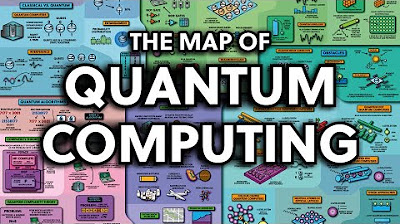What is Quantum Computing and why should we care?
Summary
TLDRIn this LinkedIn live video, GTH sharf provides an introduction to quantum computing for a general audience. He draws connections to quantum physics concepts like superposition and Schrodinger's cat to explain how quantum computing works. Sharf explains that quantum computing can solve problems exponentially faster than traditional computing by processing multiple possibilities simultaneously. However, quantum computing requires extremely specific physical environments to maintain the quantum state. Sharf aims to increase understanding of quantum computing and its potential applications, like accelerating artificial intelligence.
Takeaways
- 😀 The concept of quantum physics allows for the existence of multiple realities and infinite possibilities
- 👨🔬 Quantum computing offers exponential increases in computers' ability to solve problems compared to traditional computing
- 💡 Grover's algorithm shows quantum computing's potential - finding a name in a phone book of 100 million in just 10,000 operations
- 😺 Schrodinger's cat thought experiment demonstrates the concept of superposition in quantum physics
- 🌀 Superposition means multiple states can exist at once, enabling quantum computing's power
- ❄️ Extremely cold temperatures are required to enable qubits to enter superposition states
- 🚀 If combined with AI, quantum computing could massively accelerate its capabilities
- 🖥️ Traditional computing uses binary code of 1s and 0s, while quantum uses cubits allowing many more simultaneous states
- 🎥 Understanding quantum physics concepts through sci-fi like Star Trek can be informative and engaging
- 💪 There are still challenges in stabilizing qubits to reliably harness the potential of quantum computing
Q & A
What are some examples of quantum computing mentioned in pop culture?
-The video mentions Star Trek, Quantum Leap, and Avengers: Endgame as examples of quantum computing being referenced in pop culture.
How does quantum computing provide an exponential increase in computing power compared to traditional computing?
-Quantum computing utilizes quantum bits (qubits) which can represent multiple states simultaneously, unlike traditional binary bits which can only represent 1s or 0s. This allows quantum computers to process exponentially more information.
What is superposition in quantum physics?
-Superposition refers to how qubits can represent multiple states at once. This allows quantum computers to analyze many possibilities simultaneously.
What is Schrodinger's cat and how does it relate to quantum computing?
-Schrodinger's cat is a thought experiment that illustrates superposition in quantum physics. The cat in the box exists in multiple states (alive and dead) until observed, like a qubit exists in multiple states until measured.
What are some challenges facing practical quantum computing?
-Key challenges include maintaining the delicate quantum states required, lack of stability, and the extreme conditions like absolute zero temperature needed.
How might quantum computing impact artificial intelligence?
-Quantum computing could exponentially increase the speed at which AI can process data and conduct tasks. This could greatly accelerate AI capabilities.
What is Grover's algorithm?
-Grover's algorithm is a quantum algorithm for searching databases rapidly. It illustrates how quantum computing could search huge datasets faster than classical computers.
What are cubits?
-Qubits are the quantum version of classical binary bits. While bits can represent 0 or 1, qubits can represent 0, 1 or a superposition of both states.
How is quantum computing different from classical computing?
-Classical computing uses binary bits and sequential processing. Quantum computing utilizes qubits and parallel processing of multiple states to achieve exponential speedups.
What fields might benefit from quantum computing?
-Fields like artificial intelligence, drug discovery, financial modeling, cryptography, and chemistry could see transformative changes from quantum computing.
Outlines

This section is available to paid users only. Please upgrade to access this part.
Upgrade NowMindmap

This section is available to paid users only. Please upgrade to access this part.
Upgrade NowKeywords

This section is available to paid users only. Please upgrade to access this part.
Upgrade NowHighlights

This section is available to paid users only. Please upgrade to access this part.
Upgrade NowTranscripts

This section is available to paid users only. Please upgrade to access this part.
Upgrade NowBrowse More Related Video

Quantum Mechanics for Dummies

Computação Quântica - Fundamentos e Aplicações - Aula 07

The Map of Quantum Computing - Quantum Computing Explained

How to program a quantum computer using Qiskit

Why Quantum Algorithms? — Programming on Quantum Computers — Coding with Qiskit S2E1

Computação Quântica - Fundamentos e Aplicações - Aula 04
5.0 / 5 (0 votes)